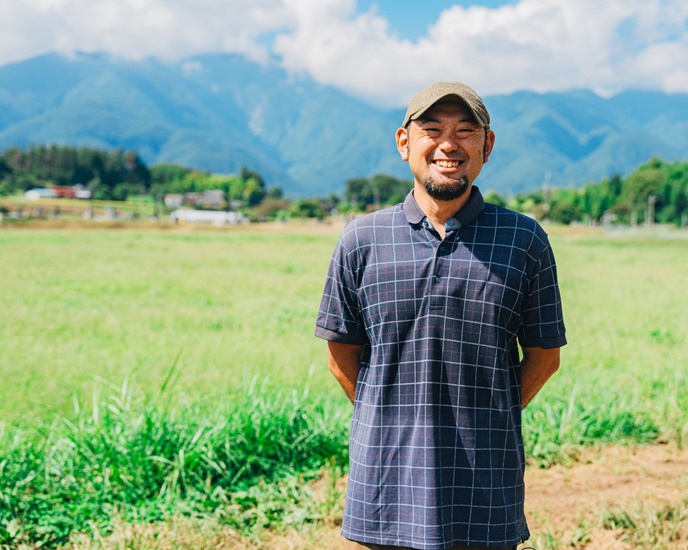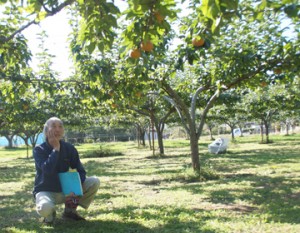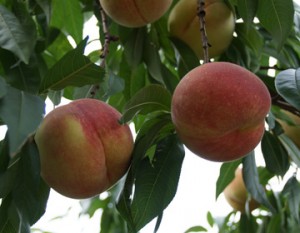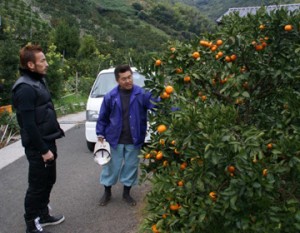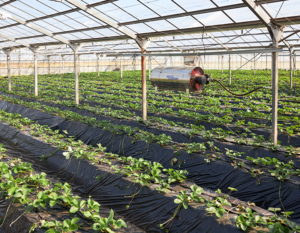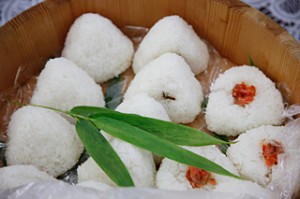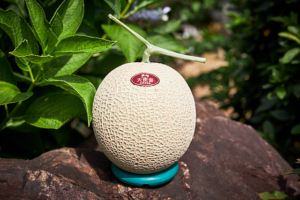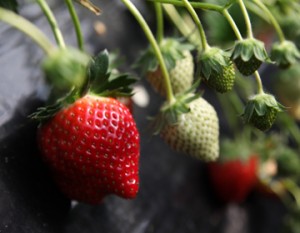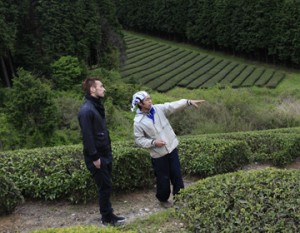Crazy Farm’s organic vegetables have been praised by chefs at local restaurants for their organic flavor and variety. Surrounded by Yatsugatake (Mt. Yatsugatake) and Kaikomagatake (Mt. Kai), which have been selected as one of the top 100 mountains in Japan, the production of environmentally friendly and healthy vegetables begins with “carefully nurturing the soil.
“Delicious food” nurtured by nature

Crazy Farm is located in Kobuchizawa-cho, Hokuto City, at an altitude of approximately 800 meters, surrounded by the famous mountains of the Southern Alps and Yatsugatake. The farm also produces Koshihikari rice and sake rice used for the region’s famous sake “Shichiken. Yasutaka Ishige, the representative of the farm, started farming when he was in his 20s because he “wanted to produce healthy and delicious food,” but “the road was not an easy one,” he says.
From Company Employee to Farmer

Mr. Ishige likens the farm to a “research laboratory. He mixes charcoal from the pizza oven at his wife’s restaurant, “ristorante koen,” with the soil and uses carbon farming to increase the carbon content, which is the main source of food for soil microorganisms. The root of Ishige’s idea came from his research on biomimetics while attending an agricultural university. Biomimetics is a science and technology that studies the form, function, behavior, and production mechanisms of living organisms and applies them to the development of new technologies and manufacturing. His interest in environmental restoration and sustainability later led him to agriculture.
After graduating from an agricultural university, Mr. Ishige, a native of Yokohama, worked for an agriculture-related company. At the time, his father was looking for a vacation home in Hokuto City, and they often visited the area together, which led to his desire to work surrounded by nature and mountains such as Mount Kaikomagatake. A turning point came 17 years ago. By chance, he was able to rent a farm in Hokuto City, and he finally decided to start organic farming.
Beginning of Western Vegetable Cultivation

When he first moved to Japan and began organic farming, he grew green peppers and large tomatoes, but when an Italian chef he knew brought back seeds from his training, he began growing Western vegetables. Currently, he grows about 75 varieties of vegetables, of which French-style vegetables such as beets and Italian-style vegetables characterized by their rich flavor account for about half of the total. The appeal of Crazy Farm is that it produces an abundance of rare vegetables that are not often distributed in supermarkets, such as San Marzano Riserva, Napolitana Canaria, and micro-tomatoes with a wild sweet and sour taste that is close to the original variety. In addition, the curly kale variety produced at Crazy Farm is rich in vitamins and minerals and is effective for beautiful skin and anti-aging. The kale’s characteristic low bitterness makes it suitable for eating raw, such as in salads, making it a tasty and healthy vegetable.
Ishige says, “Cultivating multiple varieties of kale is also effective as a hedge against the risk of continuous crop failure that can occur when growing the same variety. Until then, his main business was wholesale sales to roadside stations and direct sales outlets, but gradually the number of restaurants that wanted to purchase rare Western vegetables increased, and now the organic vegetables produced by Mr. Ishige are highly regarded among chefs.
Growing vegetables is a “dialogue with the chef”.
He would order new seeds, grow them, and have the chefs taste them. Through repeated trial and error, he has increased the number of crops he grows. In Hokuto, there are many restaurants that feature locally grown fresh vegetables,
The level of cuisine that takes advantage of the flavor of the vegetables is high. He says, “I can improve myself by talking with the chefs. Ishige’s respect for the relationship with the chefs and his willingness to take requests when growing vegetables are probably one of the reasons why he attracts so many chefs to his restaurant.
Microorganisms improve the soil and the soil improves the vegetables.

Recently, the company has been focusing on green manure cultivation. Green manure cultivation is a cultivation method that uses the plants themselves as fertilizer, and Crazy Farm mixes the cultivated rye into the soil before the ears are harvested. This allows the soil to store an abundance of carbon, which is plant fiber, and improves the soil environment by stimulating the activity of microorganisms.
The tall weeds that grow in Mr. Ishige’s fields protect the vegetables from direct sunlight like a curtain, and like rye, they supply carbon to the soil in a cycle of dying and returning to the soil.
Mr. Ishige’s vegetable production has attracted attention from the food and beverage industry overseas, and in 2023, the French champagne brand TELMONT, which is committed to sustainability, used Crazy Farm’s organic vegetables for a pairing dinner in Tokyo that attracted much attention. The chefs who came to Japan for the event actually visited Crazy Farm, and even Chef Julien Royer of Odette in Singapore, who won first place in Asia in the 2019 Asia’s 50 Best Restaurants, called the food “excellent. He praised Ishige’s vegetables not only for their taste, but also for their nutrition and environmental friendliness.
Crazy Farm is now steadily expanding its sales channels to restaurants in Tokyo, but Ishige says, “There are still many issues to be addressed before organic farming can become a sustainable local industry.
Hokuto City brand organic vegetables

Since its establishment in 2013, the group has been mainly engaged in joint shipments and home delivery box sales, but has also been seeking ways to sustain and develop organic vegetable production. Since its establishment in 2013, the group has been mainly engaged in joint shipments and sales through home delivery boxes, and has been seeking ways to sustain and develop organic vegetable production by expanding sales channels and improving cultivation techniques through information sharing.
In addition, Hokuto City has announced the “Organic Village Declaration,” which will promote an integrated approach to organic vegetable production, distribution, and consumption in 2023, in cooperation with organic farmers and local residents. Various measures are being considered in accordance with the “Green Food System Strategy (formulated by the Ministry of Agriculture, Forestry and Fisheries),” which sets out a mission to increase the domestic production rate and reduce the use of fossil fuels.
It is true that many people in the region buy the mass-produced vegetables that line the supermarket shelves. In order for people to understand the value of organic vegetables and their price, I think it will become essential to have government backup in terms of publicity to consumers and strengthening distribution to other prefectures.”
Toward a sustainable lifestyle

With the current price of energy and foreign fuels skyrocketing, Mr. Ishige is working to practice natural farming methods that do not rely on reaping and tilling fuels. His goal for the future is to reduce costs while seeking a way of farming that puts as little burden on the environment as possible, and through organic farming, he hopes to review human activities that cause abnormal weather.
I am glad we started organic farming in Hokuto City,” he said. We have made it this far with the help and connections of many people, including local farmers and restaurants.
With the aging of the population and the rising cost of raw materials, he is thinking about creating an environment where everyone wants to be involved in farming. He says that he will focus on passing on his own cultivation techniques and know-how to younger farmers, and hopes to play a role in nurturing the next generation who will be responsible for the future of agriculture. The production of soil and vegetables brings people together, and through organic farming, the natural environment, the local economy, and people’s lives can be brought back into circulation. A sustainable lifestyle in which agriculture and daily life are closely connected will spread from Crazy Farm.




